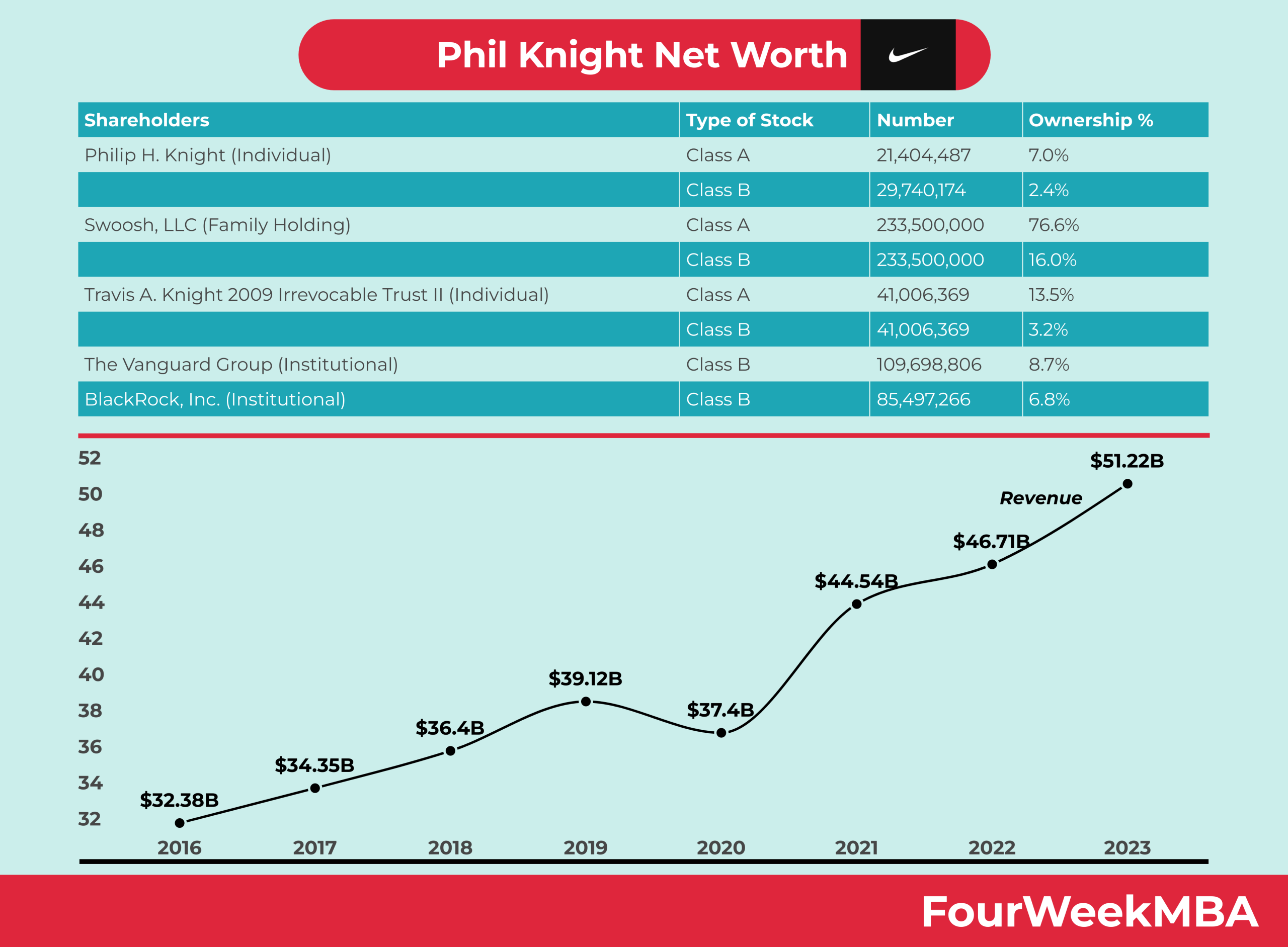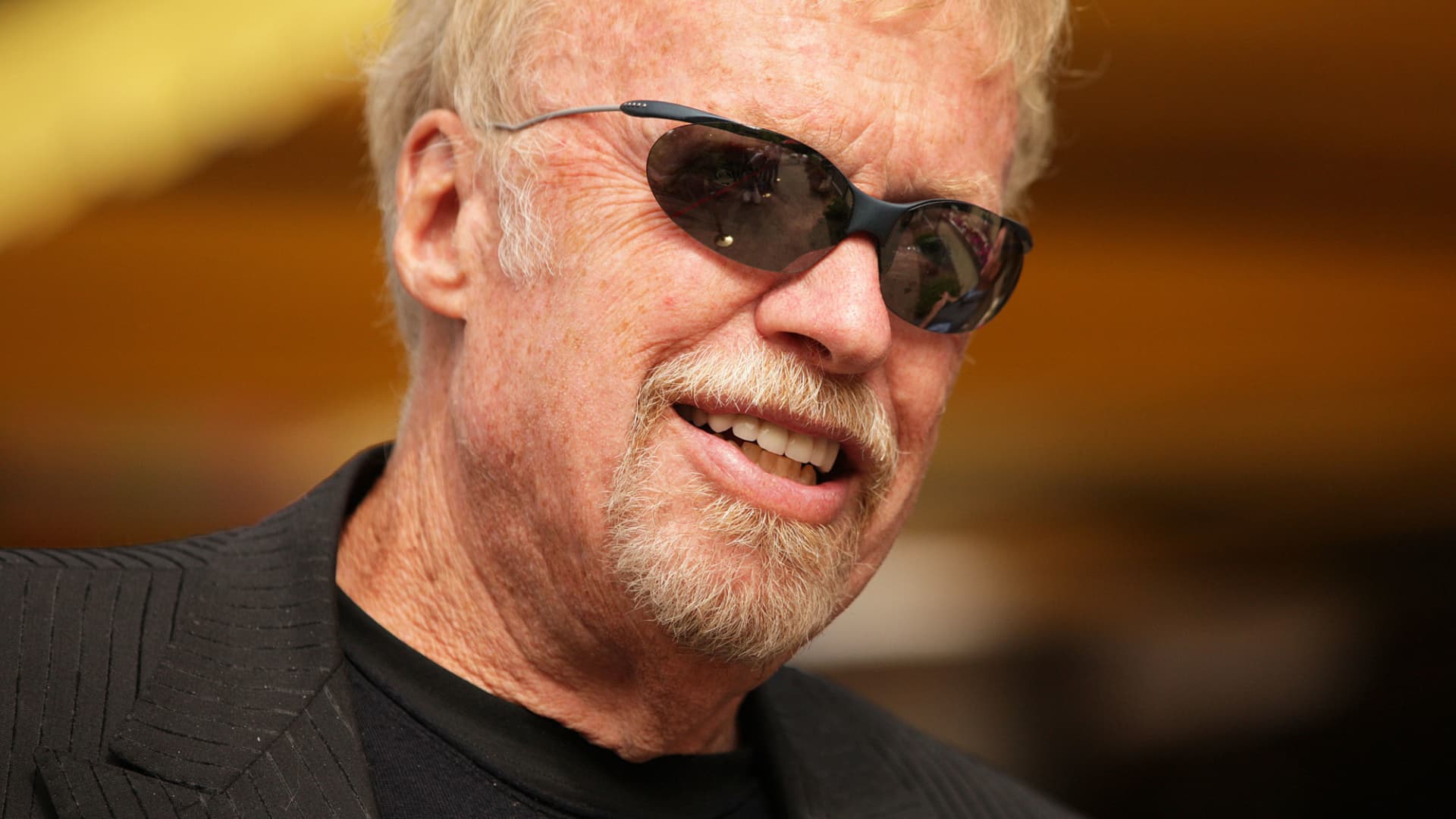Have you ever wondered about the incredible wealth behind one of the world's most recognizable brands? It's almost certain you have, as many people are curious about how such fortunes come to be. We are talking about Phil Knight, the visionary who helped bring Nike into existence. His financial standing, a topic of much discussion, truly reflects a lifetime dedicated to innovation and business savvy. So, too it's fascinating to consider the journey that leads to such vast sums.
For many, the name Phil Knight is synonymous with athletic excellence and groundbreaking marketing. He is, in a way, the very personification of a successful American entrepreneur. His story isn't just about money; it's also about building something from the ground up, something that changed how we view sports and sportswear forever. This piece aims to give you a clear picture of his significant net worth and how it all came about.
Discovering the details of Phil Knight's wealth means looking at the origins of Nike, his continued involvement, and other ventures he has pursued. It's a tale of perseverance, smart decisions, and, quite simply, knowing what people want. You know, it's a pretty remarkable story when you get right down to it.
Table of Contents
- Biography and Personal Details of Phil Knight
- The Genesis of a Giant: Nike's Early Days
- How Phil Knight Built His Fortune
- Phil Knight's Net Worth: The Numbers
- Beyond Nike: Other Ventures and Philanthropy
- Phil Knight's Retirement and Continued Influence
- Frequently Asked Questions About Phil Knight's Net Worth
Biography and Personal Details of Phil Knight
Phil Knight, a figure of great importance in the world of sports business, has a background rooted in Oregon. He attended the University of Oregon, where he was a track athlete. This early connection to running would, in fact, shape his future in a significant way. His life story really shows how a personal passion can lead to a global enterprise.
Born in 1938, Phil Knight's path to becoming a titan of industry started with a simple idea. He was a runner himself, and that experience gave him a unique perspective on what athletes needed. This personal experience was, arguably, a key ingredient in Nike's early success. It's quite interesting how his athletic past connects so directly to his business achievements.
Here are some personal details about Phil Knight:
| Detail | Information |
|---|---|
| Full Name | Philip Hampson Knight |
| Born | February 24, 1938 |
| Place of Birth | Portland, Oregon, U.S. |
| Education | University of Oregon, Stanford Graduate School of Business |
| Known For | Co-founder of Nike, Inc. |
| Role at Nike | Former Chairman (retired 2016) |
| Other Ventures | Owner of Laika (stop-motion film company) |
| Philanthropic Status | Known Philanthropist |
The Genesis of a Giant: Nike's Early Days
The story of Nike began not with a grand corporate vision, but with a simple partnership between a track coach and his former athlete. Phil Knight, as a matter of fact, ran track at the University of Oregon. This connection to the sport was incredibly important. He saw a need for better athletic shoes, a need that existing companies just weren't meeting.
In the very early days, before it was even called Nike, the company started by importing shoes from Japan. This was, in a way, a test of the market, a chance to see if there was a real demand for high-quality, affordable athletic footwear. Knight and his coach, Bill Bowerman, worked tirelessly to improve shoe designs, creating prototypes that would eventually become iconic. They were, you know, really hands-on in the beginning.
The company, originally named Blue Ribbon Sports, eventually became Nike in 1971. This name change marked a significant turning point, leading to the creation of the famous "swoosh" logo and a new era of growth. It was a time when, basically, a small operation started to dream very big. Their dedication to athletes and performance, quite honestly, set them apart from the competition.
How Phil Knight Built His Fortune
Phil Knight's immense fortune stems primarily from his role as the founder and largest individual shareholder of Nike. The company, which started small, grew into the world's biggest seller of athletic shoes and sports apparel. This growth, in fact, translated directly into a significant increase in his personal wealth. It's a classic example of how equity in a successful company can create vast riches.
His wealth is tied to the value of Nike's stock. As the company expanded globally, its market capitalization soared, and so did the value of Knight's ownership stake. He and his family, for example, still own a considerable portion of the company. The text tells us they hold about 20% of the company, which had $51 billion in fiscal 2024 revenue. That's a pretty substantial share, you know.
The continued success of Nike, even after his retirement from active leadership, ensures that his net worth remains incredibly high. The brand's global reach, its strong marketing, and its constant innovation keep it at the top of the sports industry. It's clear that, in essence, his financial success is deeply intertwined with Nike's enduring legacy. This long-term growth is, quite frankly, a testament to the strong foundation he helped build.
Phil Knight's Net Worth: The Numbers
When we talk about Phil Knight's net worth, it's important to remember that these figures can shift. The value of a person's fortune, especially one tied to stock holdings, changes with market conditions. However, various estimates give us a good idea of his financial standing. As a matter of fact, the numbers are consistently impressive.
According to Forbes, as of December 2023, his net worth was estimated at a staggering $45.0 billion. This figure places him among the wealthiest individuals globally. Earlier in the same year, or perhaps around July 2025, another estimate from Forbes put his net worth at US$34.1 billion. This difference, naturally, shows the dynamic nature of such valuations.
Other sources also provide slightly different, but still very high, figures. One assessment states his net worth as $43 billion, while another, again from Forbes, noted it as $36.8 billion, making him the 24th wealthiest billionaire in the U.S. and 51st wealthiest in the world. So, it's pretty clear his wealth is consistently in the tens of billions. These variations, you know, are typical for high-net-worth individuals.
His net worth makes him one of the richest people on the planet. For instance, one reference states he is the 25th richest person in the world. This consistent ranking near the top highlights the sheer scale of the wealth he has accumulated through Nike. It's, in a way, a testament to the brand's enduring value and his long-term vision.
Beyond Nike: Other Ventures and Philanthropy
While Nike is certainly the main source of Phil Knight's wealth, he has also ventured into other interesting areas. One notable example is his ownership of Laika, a stop-motion film production company. This shows a broader range of interests beyond just sports apparel. It's a different kind of creative endeavor, to be honest.
Beyond his business pursuits, Phil Knight is also known for his philanthropic efforts. The provided text mentions that he is a philanthropist, indicating his commitment to giving back. While specific details of his charitable contributions aren't outlined in the text, his status as a generous giver is recognized. This aspect of his life, you know, adds another layer to his public persona.
His contributions often focus on education and his alma mater, the University of Oregon, as well as medical research. Many wealthy individuals, in fact, turn their attention to philanthropy as their fortunes grow. It's a way to leave a lasting impact beyond just business success. This commitment to helping others is, quite frankly, an important part of his legacy.
Phil Knight's Retirement and Continued Influence
Phil Knight stepped down as chairman of Nike in 2016, marking the end of a remarkable 52-year tenure at the company he co-founded. This retirement, however, didn't mean a complete departure from the company's influence. He remains the largest shareholder, meaning his decisions and opinions still carry significant weight. It's, you know, a pretty powerful position to be in.
Even in retirement, Knight's legacy continues to shape Nike's direction and culture. The values he instilled in the company from its earliest days—innovation, a focus on athletes, and bold marketing—are still very much alive. His vision, in a way, is woven into the very fabric of the brand. This long-lasting impact is, quite honestly, a rare achievement for any founder.
His story serves as an inspiration for aspiring entrepreneurs and business leaders worldwide. It shows what's possible when passion meets persistence and a clear understanding of a market need. His continued presence as a major shareholder means he's still a key figure in the Nike story, even if he's no longer at the helm day-to-day. You can learn more about Nike's journey on our site, and for deeper insights into the company's history, check out this page about its origins.
Frequently Asked Questions About Phil Knight's Net Worth
What is Phil Knight's current net worth?
Phil Knight's net worth fluctuates with market conditions, but recent estimates from Forbes place it at approximately $45.0 billion as of December 2023. Other figures provided range from $34.1 billion to $43 billion, reflecting the dynamic nature of his wealth. It's, you know, a very large amount of money.
How did Phil Knight make his billions?
Phil Knight made his billions primarily as the co-founder and largest individual shareholder of Nike, Inc. He started the company, originally known as Blue Ribbon Sports, by importing athletic shoes and later developing their own designs. The immense global success and growth of Nike, which generates billions in revenue annually, directly contributed to his vast fortune. His ownership stake in such a massive company is, quite frankly, the main reason for his wealth.
Does Phil Knight still own Nike?
Yes, Phil Knight and his family still own a significant portion of Nike. Even after retiring as chairman in 2016, they retain about 20% of the company. This substantial ownership stake means he continues to benefit from Nike's ongoing success and remains a very influential figure in the company's future. It's, in a way, his lasting connection to the brand he built.
For more detailed financial information, you can often find updated figures on Forbes' billionaire list.



